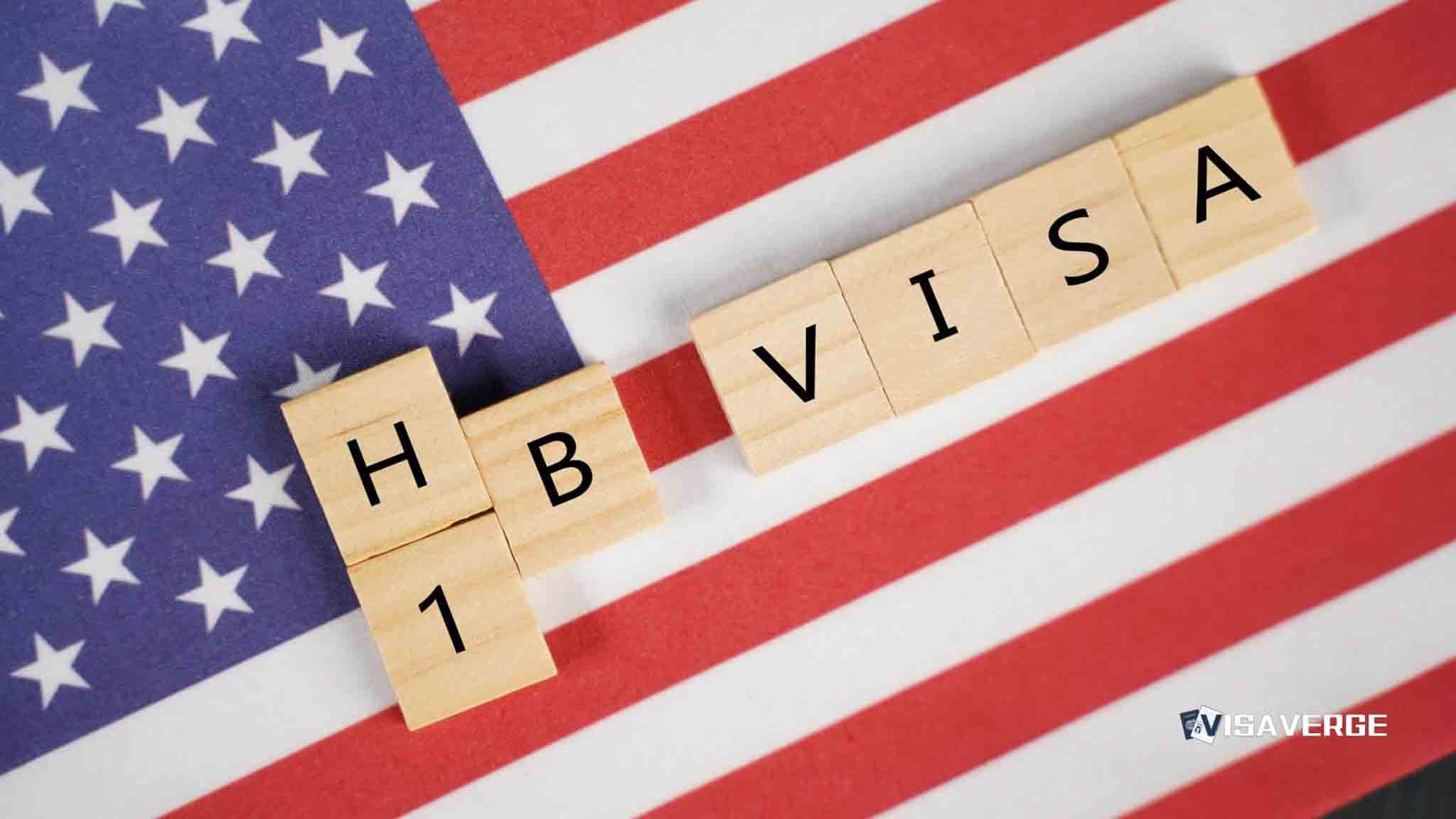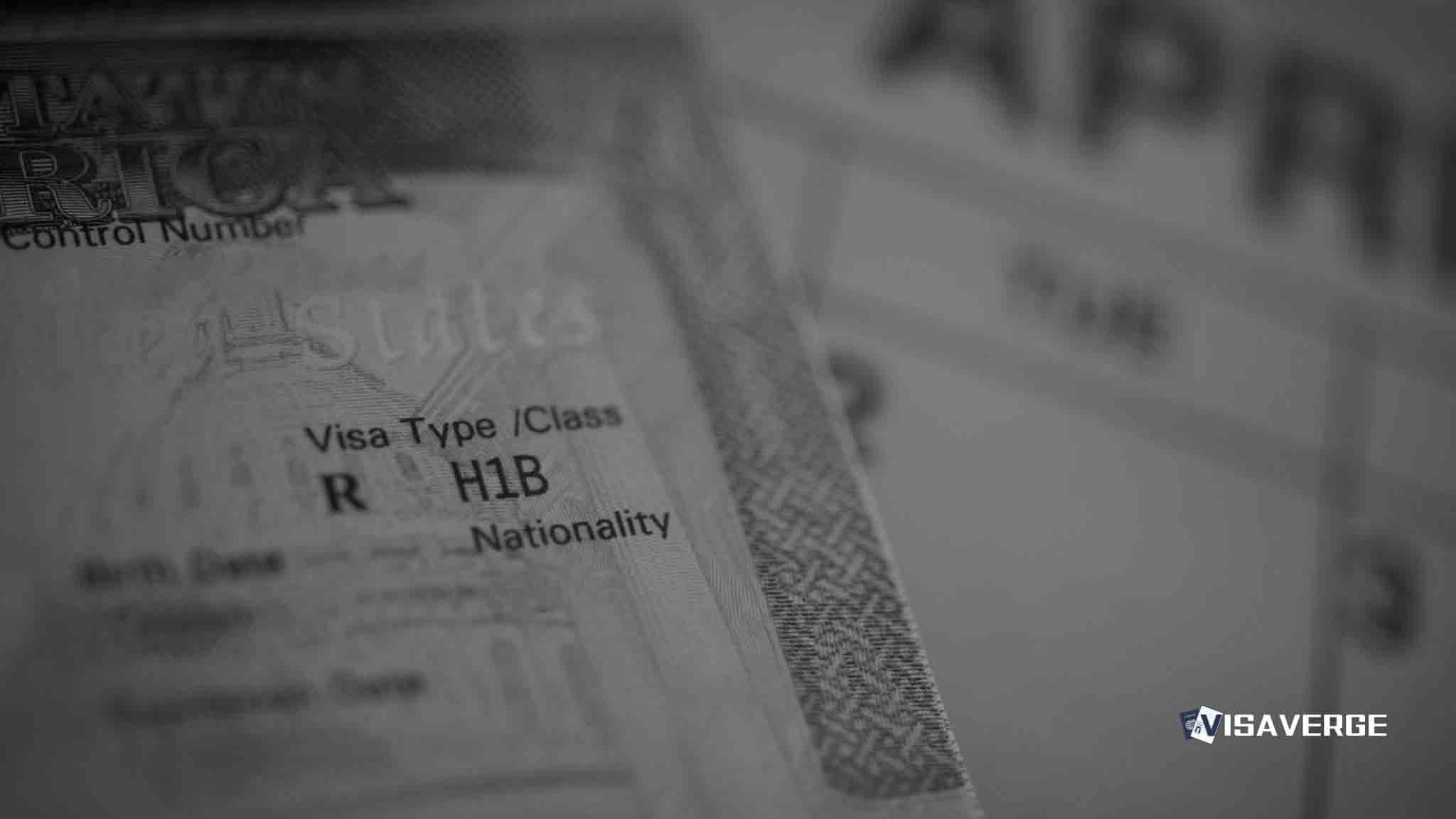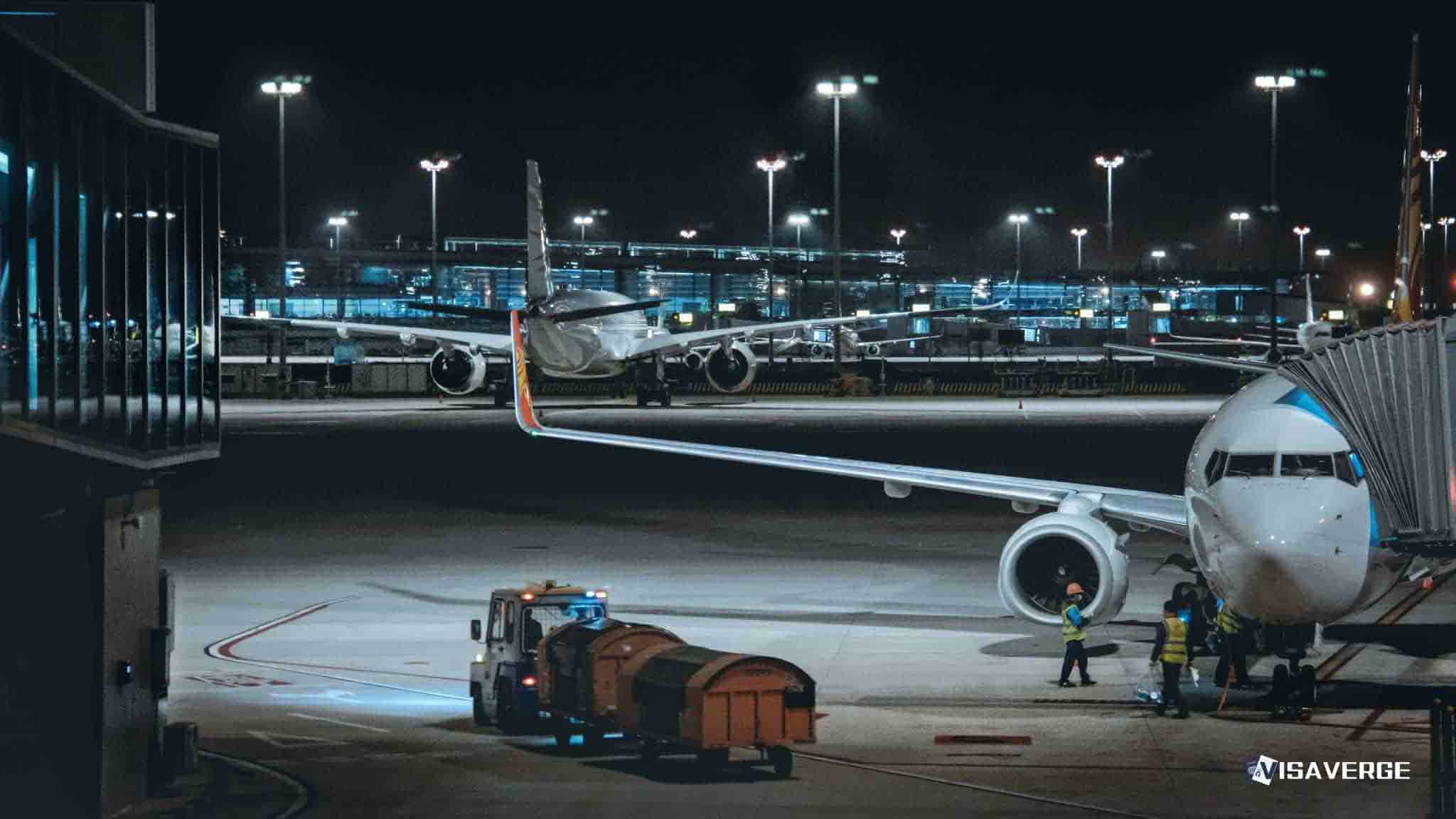Quick Glance:
- The H-1B visa program in the United States offers a special lottery system for advanced degree holders, providing them with a greater chance of selection for employment opportunities.
- The lottery process includes an initial registration, an advanced degree lottery, and a regular lottery for unselected petitions.
- Eligibility for the master’s cap requires completion of a master’s degree from an accredited U.S. institution in a field that qualifies as a specialty occupation. Timing and deadlines are crucial to participate in the lottery. Have you ever dreamed of taking your skills to the United States for work? If you hold an advanced degree, you might be in luck, thanks to a special lottery system designed to give people like you a better shot at living the American dream. Let’s dive into what this system is all about.
Understanding the Advanced Degree Lottery System
In the world of U.S. immigration, there’s something called the H-1B visa program. This program allows companies in the United States to temporarily employ foreign workers in specialty occupations. A specialty occupation is one that typically requires at least a bachelor’s degree in a specific field of study. Each year, there’s a cap on how many H-1B visas can be issued: 65,000 visas under the regular cap and an additional 20,000 under what’s known as the “master’s cap.”
The master’s cap is the core of our special lottery system, specifically set aside for individuals who’ve earned an advanced degree from an U.S. institution of higher education. This is where it gets exciting for graduates because the U.S. Citizenship and Immigration Services (USCIS) conducts a lottery before the regular H-1B cap lottery to give those with a U.S. master’s degree or higher a greater chance of selection.
So, why is this lottery system special? It essentially offers two bites at the apple for advanced degree holders. If your petition isn’t selected in the master’s cap lottery, it gets tossed back into the general pool, giving you another chance during the regular H-1B cap lottery.
How Does the Lottery Work?
Here’s a step-by-step look at how the H-1B visa lottery process unfolds for advanced degree holders: 1. Initial Registration: Employers must register with USCIS and enter each individual they wish to sponsor for an H-1B visa into the lottery system during a designated registration period, typically in March. 2. The Advanced Degree Lottery: USCIS first conducts the lottery for the 20,000 spots reserved under the master’s cap. 3. The Regular Lottery: Unselected advanced degree petitions are then included in the regular pool where the lottery for the remaining 65,000 spots takes place.
All of this means that there are no guarantees, but the odds are somewhat improved for those with an advanced degree from a U.S. institution.

Eligibility Criteria for the Master’s Cap
To qualify for the master’s cap, you need to have the right credentials. Here’s what’s required:
- You have completed a master’s degree or higher at a U.S. institution.
- The institution must be accredited and recognized as a non-profit public or private institution.
- Your degree has to be in a field that qualifies as a specialty occupation.
Before getting too excited, double-check that your degree and institution meet these criteria by visiting official educational and immigration resources.
Timing and Deadlines Matter
In the world of H-1B visas, timing is everything. The initial registration period and the subsequent lottery are conducted early in the year, with the USCIS typically announcing exact dates ahead of time. Employers must be ready to register and submit petitions promptly to make sure they don’t miss these critical windows.
Tips for Prospective H-1B Candidates and Employers
- Start early: Gather all necessary documentation well before the registration period opens.
- Double-check eligibility: Make sure both the candidate and the degree qualify under the master’s cap criteria.
- Work with an immigration attorney: Navigating the complexities of H-1B visas can be challenging, so professional legal advice can be invaluable.
Why This System Is Valuable
The special lottery system for advanced degrees is more than just a policy; it’s a way for the U.S. to attract and retain top international talent. According to the USCIS, the goal is to help U.S. employers seek the best and brightest from around the world, which in turn can drive innovation and growth in the U.S. economy.
Holders of advanced degrees, this special lottery system could be your ticket to new opportunities and experiences in the United States. It not only recognizes the value of your higher education but also provides a gateway to potentially starting a fresh chapter in your professional life. Keep an eye on the official USCIS website for the latest updates, process details, and registration timelines.
Navigating the immigration process can be complex, but understanding the H-1B visa’s advanced degree lottery system is a great starting point for anyone looking to bring their expertise to the U.S. Stay informed, prepared, and ready to take advantage of this unique opportunity that could set the stage for the next big step in your career.
So, there you have it, folks! The H-1B visa’s advanced degree lottery system is like a rollercoaster ride of opportunities for those with higher education in the United States. It’s like playing a game of chance with not one, but two shots at winning a spot. Want to dive deeper into this exciting topic? Head over to visaverge.com for more fascinating insights and helpful resources. Trust me, you won’t be disappointed!
FAQ’s to know:
FAQ 1: What is the purpose of the H-1B visa advanced degree lottery system?
The H-1B visa advanced degree lottery system is designed to give individuals with advanced degrees from U.S. institutions a better chance at obtaining an H-1B visa. This system aims to attract and retain top international talent, allowing U.S. employers to hire skilled foreign workers in specialty occupations. The goal is to drive innovation and contribute to the growth of the U.S. economy.
FAQ 2: How does the H-1B visa lottery process work for advanced degree holders?
The H-1B visa lottery process for advanced degree holders involves two stages:
- Initial registration: Employers register with the U.S. Citizenship and Immigration Services (USCIS) during the designated registration period. They enter the individuals they wish to sponsor for an H-1B visa into the lottery system.
- Lottery selection: The USCIS conducts two lotteries. First, it selects 20,000 petitions from the pool of advanced degree holders under the master’s cap. If a petition is not selected in this lottery, it is then included in the general pool of 65,000 petitions for the regular H-1B cap lottery.
Please note that participation in the lottery does not guarantee selection, but having an advanced degree from a U.S. institution increases the chances of being selected.
FAQ 3: What are the eligibility criteria for the H-1B visa master’s cap?
To be eligible for the master’s cap, you need to meet the following criteria:
- Have completed a master’s degree or higher at a U.S. institution of higher education.
- The educational institution must be accredited and recognized as a non-profit public or private institution.
- The degree should be in a field that qualifies as a specialty occupation.
It is important to verify if your degree and institution meet these criteria by referring to official educational and immigration resources before considering participation in the H-1B visa lottery.
What did you learn? Answer below to know:
- What is the purpose of the H-1B visa program? a) To temporarily employ U.S. workers in specialty occupations. b) To provide an opportunity for advanced degree holders to live and work in the United States. c) To attract and retain international talent in the United States. d) To conduct a lottery for individuals seeking a U.S. master’s degree.
- What is the advantage of the special lottery system for advanced degree holders? a) It guarantees selection for an H-1B visa. b) It provides two chances for selection in the H-1B visa lottery. c) It exempts advanced degree holders from the regular H-1B cap lottery. d) It increases the number of H-1B visas available each year.
- What are the eligibility criteria for the master’s cap under the H-1B visa program? a) Completion of a bachelor’s degree from a U.S. institution. b) Accreditation of the institution by USCIS. c) Completion of a master’s degree or higher from a U.S. institution. d) Employment sponsorship from a U.S. company.
Did you Know?
Did You Know?
- The H-1B visa program is highly competitive, with the number of applicants often exceeding the annual cap. In recent years, the demand has been so high that the entire quota for both the regular cap and the master’s cap was reached within a few days of the application period opening.
-
The H-1B visa program has a significant economic impact on the United States. A study conducted by the National Foundation for American Policy found that for every additional 100 H-1B workers, an additional 183 jobs are created for U.S. natives.
-
The concept of a lottery system for immigrant visas is not unique to the United States. Canada also uses a lottery system, known as the Express Entry system, to manage its skilled worker immigration program.
-
The origins of the H-1B visa program can be traced back to the Immigration and Nationality Act of 1952, which introduced a temporary worker program to address labor shortages in specialized occupations.
-
The H-1B visa program has a wage requirement to ensure that foreign workers are not employed at a lower wage than their American counterparts. Employers are required to pay the higher of the prevailing wage or the actual wage paid to similarly employed workers.
-
H-1B visa holders contribute to the U.S. Social Security system, even if they are not eligible to receive benefits. According to the Social Security Administration, H-1B workers paid over $1.3 billion in social security taxes in 2019 alone.
-
The H-1B visa program is not limited to just a few industries. While technology companies are often associated with the program, H-1B visas are available for a wide range of specialty occupations, including healthcare, finance, education, architecture, and more.
-
The H-1B visa program allows for dual intent, which means that visa holders can apply for permanent residency (a green card) while on their H-1B status. This provision provides a potential pathway to long-term residency for skilled workers in the United States.
-
The H-1B visa program has a strong educational component. In order to qualify for the program, employers must show that the position they are filling requires at least a bachelor’s degree or its equivalent in a specific field of study.
-
The H-1B visa program has faced criticism and debates over the years. Some argue that it displaces American workers and depresses wages, while others believe it is crucial for maintaining the country’s competitiveness and attracting top talent.
Sources:
– https://www.uscis.gov/
– https://www.americanimmigrationcouncil.org/
– https://www.nfap.com/
Learn Today: Key Terms Explained
Glossary or Definitions:
1. H-1B Visa: A non-immigrant visa category in the United States that allows U.S. companies to temporarily employ foreign workers in specialty occupations. These occupations typically require at least a bachelor’s degree in a specific field of study.
-
Advanced Degree Lottery System: The special lottery system designed as part of the H-1B visa program to give individuals with advanced degrees from U.S. institutions a better chance of being selected for the visa. It includes an initial registration, an advanced degree lottery, and a regular lottery for unselected petitions.
-
Specialty Occupation: A job or occupation that requires a specific set of skills or knowledge that is typically acquired through the completion of at least a bachelor’s degree in a specialized field. H-1B visas are available for individuals seeking employment in specialty occupations.
-
H-1B Visa Cap: The annual limit on the number of H-1B visas that can be issued. The regular H-1B cap is set at 65,000 visas, with an additional 20,000 visas available under the master’s cap for individuals with advanced degrees from U.S. institutions.
-
Master’s Cap: A subset of the H-1B visa cap that is specifically set aside for individuals who have earned a master’s degree or higher from a U.S. institution of higher education. This cap provides an opportunity for advanced degree holders to have a greater chance of selection through a separate lottery.
-
Petition: A formal request or application submitted by an employer to the U.S. Citizenship and Immigration Services (USCIS) to sponsor an individual for an H-1B visa. Petitions are entered into the H-1B visa lottery system for consideration.
-
USCIS: The U.S. Citizenship and Immigration Services is an agency within the U.S. Department of Homeland Security responsible for processing immigration-related applications and petitions, including H-1B visa petitions.
-
Initial Registration: The process by which employers register with USCIS and enter each individual they wish to sponsor for an H-1B visa into the lottery system. This registration is typically conducted during a designated period in March.
-
Lottery Selection: The random selection process conducted by USCIS to determine which H-1B visa petitions will be selected for processing. There are two lotteries: the advanced degree lottery for the 20,000 spots under the master’s cap, and the regular lottery for the remaining 65,000 spots.
-
Credential: In the context of the master’s cap eligibility criteria, a credential refers to the completion of a master’s degree or higher from a U.S. institution of higher education.
-
Accredited Institution: An educational institution that has been officially recognized and approved by a recognized accreditation body. To qualify for the master’s cap, the institution where the applicant earned their advanced degree must be accredited and recognized as a non-profit public or private institution.
-
Specialty Occupation Eligibility: The requirement that the field of study in which an individual has completed their master’s degree must qualify as a specialty occupation. This means that the occupation must meet specific criteria set by the USCIS, including the need for specialized knowledge and the minimum educational requirements.
-
Timing and Deadlines: In the context of the H-1B visa lottery, timing and deadlines refer to the importance of submitting the registration and petition materials within the designated period. Missing these deadlines can result in ineligibility for the lottery and potential delays in the visa application process.
-
Immigration Attorney: A legal professional with expertise in immigration law who can provide guidance and assistance in navigating the complexities of the H-1B visa process. Working with an immigration attorney can help ensure that all necessary documentation and requirements are met.
-
Skilled Foreign Workers: Highly qualified individuals from other countries who possess specialized skills, knowledge, or expertise that can contribute to the U.S. workforce in areas of high demand. The H-1B visa program allows U.S. employers to hire skilled foreign workers in specialty occupations.
-
Innovation and Growth: The process of developing new ideas, products, services, or technologies that lead to economic advancement and expansion. The goal of attracting and retaining top international talent through the H-1B visa program is to drive innovation and contribute to the growth of the U.S. economy.
-
Professional Life: Refers to an individual’s career or work-related activities and experiences. The H-1B visa’s advanced degree lottery system can provide opportunities for advanced degree holders to start a new chapter in their professional lives by working in the United States.
-
USCIS Website: The official website of the U.S. Citizenship and Immigration Services. It provides the latest updates, process details, and registration timelines for various immigration programs, including the H-1B visa program.
-
Rollercoaster Ride: A metaphor used to describe the level of uncertainty and ups and downs experienced by individuals participating in the H-1B visa lottery process. The two chances provided by the advanced degree lottery system create a sense of anticipation and excitement similar to the thrill of riding a rollercoaster.
-
Game of Chance: Refers to the unpredictable nature of the H-1B visa lottery process, where selection is determined by random selection rather than guaranteed based on qualifications or merits. Participants in the lottery have no control over the outcome and must rely on luck.








